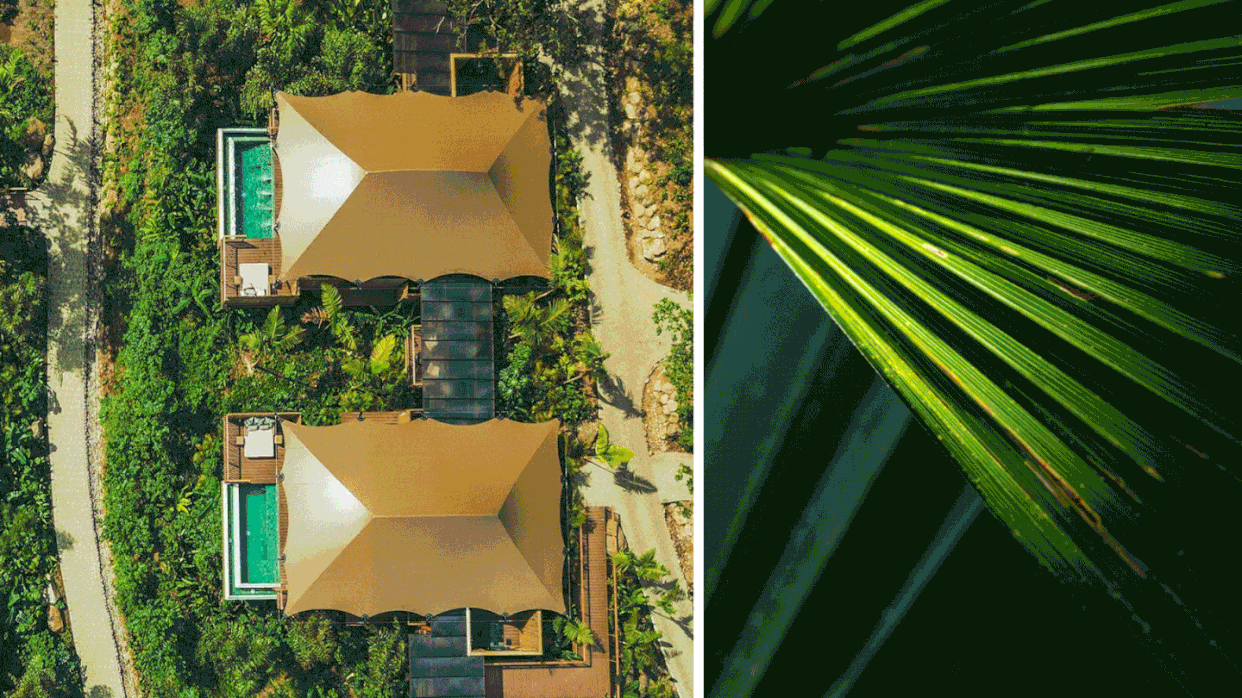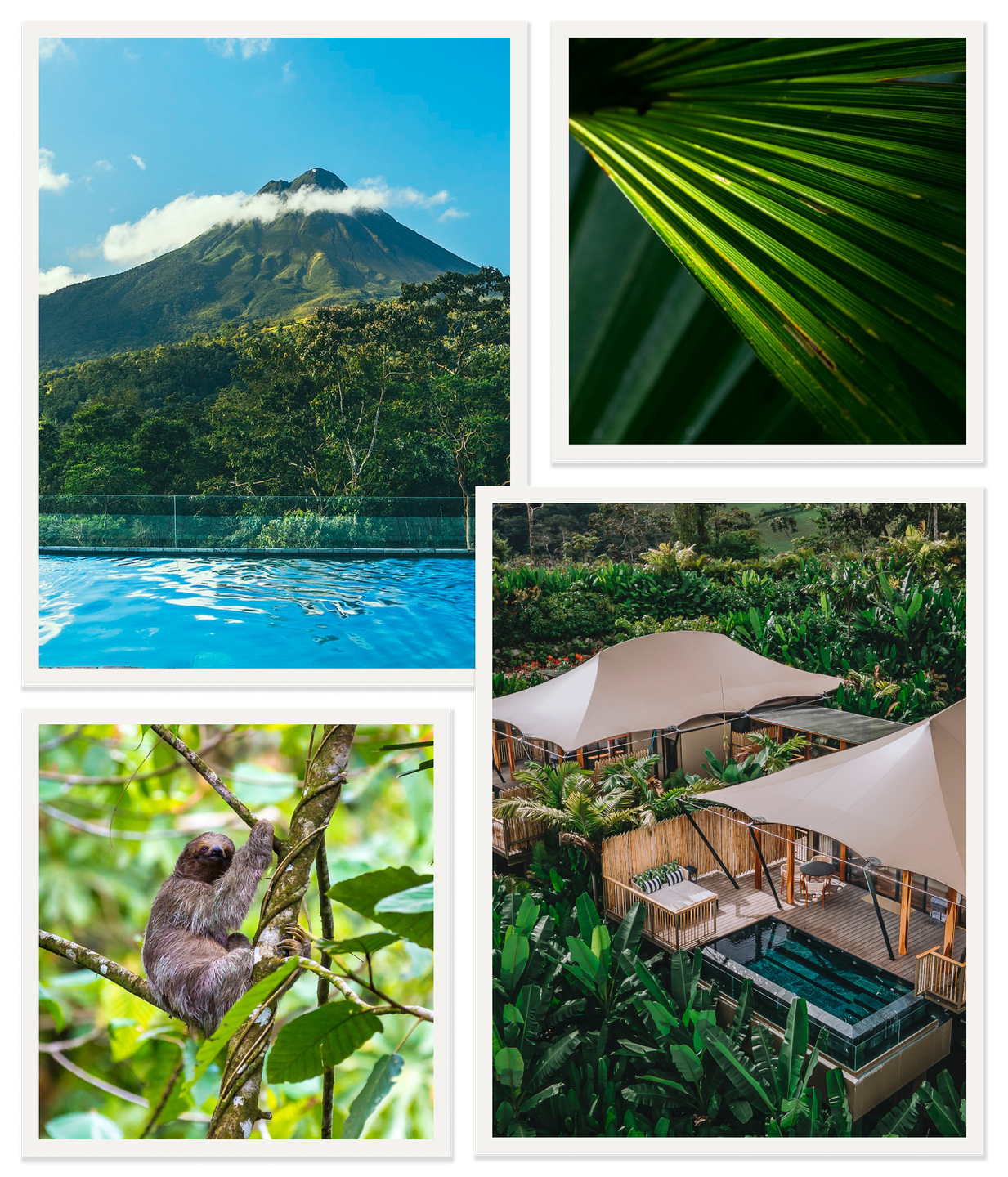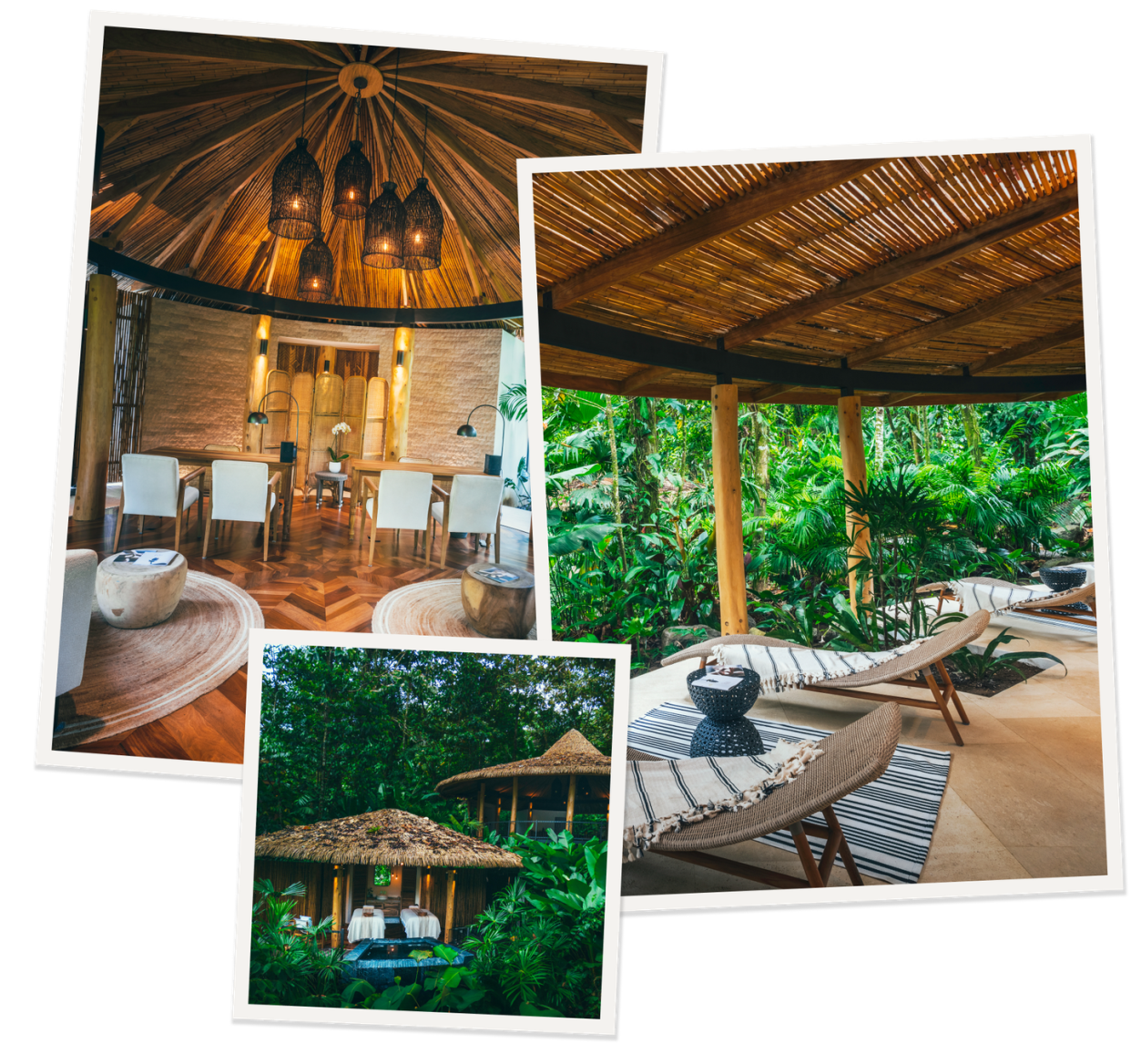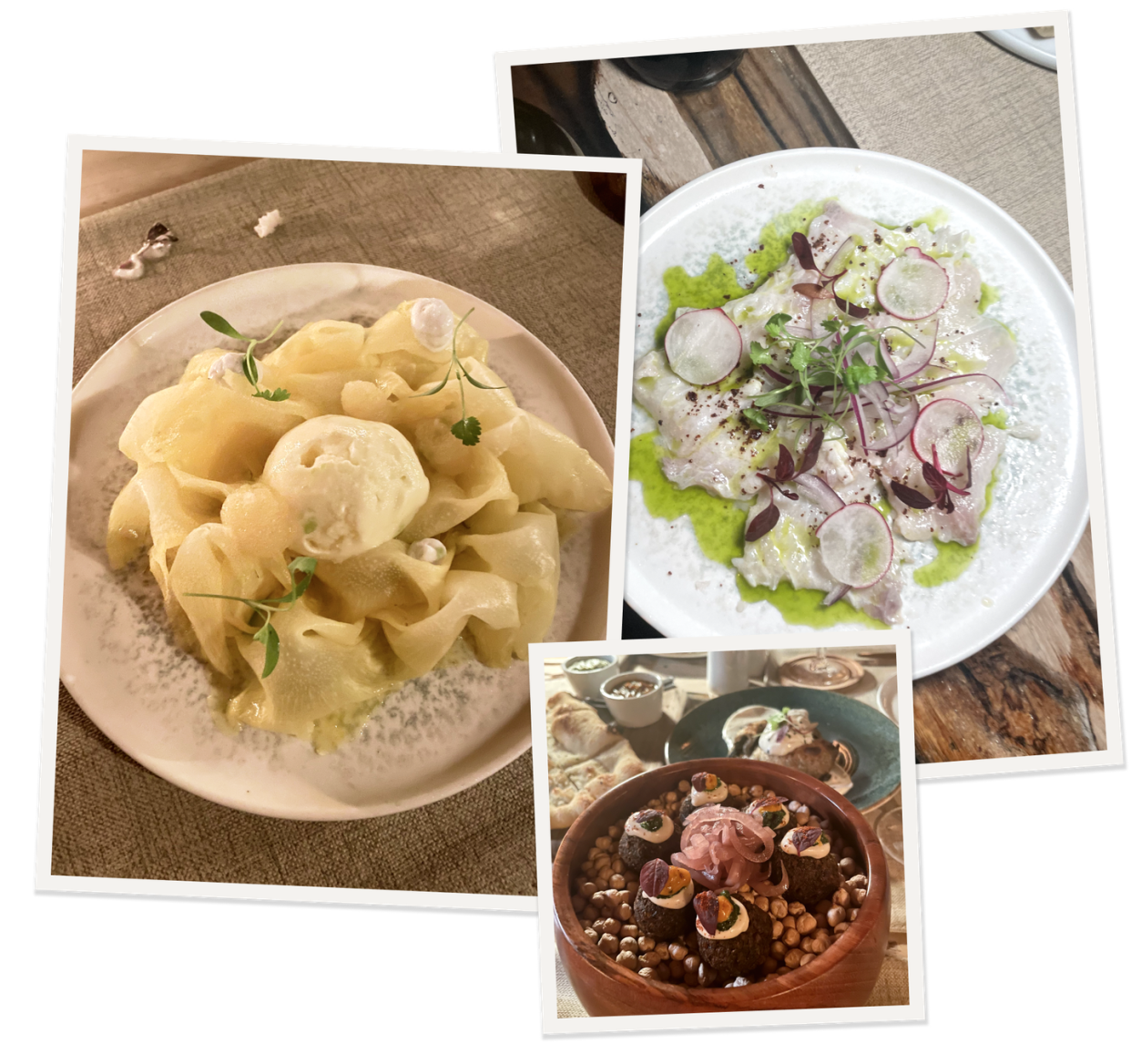A Search for Sukha


I recently participated in a group meditation where the instructor told us to think on the term sukha. A Sanskrit word, it’s not quite translatable to English—something like happiness, pleasure, or ease might come closest. It occurred to me during our session, not for the first time, how little I prioritize feeling sukha in my day-to-day life—whether because of my physiology, a high-octane life in NYC, or some combination of both. In fact, the last time I’d really felt at ease for a prolonged period of time was during a recent trip to Costa Rica, on an aptly called sukha retreat at Nayara Tented Camp.
Nestled in a canopy of palm leaves and flowering trees, with views of the majestic Arenal Volcano from every angle, Tented Camp is one of three hotels on Nayara’s sprawling property—and was our residence for the retreat. As my partner and I quickly realized, “tented” is a loose term. Before arriving, I’d had what I now realize was a wild idea that we would be sleeping in actual tents (remnants of my years at a wilderness school may have gotten in my head). But these rooms are closer to cabanas, with taut canvas fabric in place of walls, the ceilings sloping up to a point, and moody lighting that all create a tentlike feel.
Nayara is a luxury hotel in the middle of the jungle, so it’s no surprise that everything there exudes beauty. But there’s something particularly distinctive about how the hotel itself mingles with the nature around it. It’s not just in the style—a traditional Costa Rican bohemian mixed with a modern, woodsy feel—but the way the buildings intertwine in an open-air harmony with the local habitat, blending so seamlessly that it’s as if the two have always existed together.

And actually, they have. The local forest was once demolished to make way for a pasture. But Nayara committed to reforesting the jungle that once existed, and has rebuilt and restored the ecosystem. When it comes to sustainable design, it’s hard to beat a place that has painstakingly cultivated so many trees and provided a home to native species (birds and sloths galore!). Proof of their commitment to conservation is living and breathing all around you. The ubiquitous Costa Rican saying pura vida—“pure life”—is not an exaggeration there.
Though there was something I was unprepared for: This was a sukha retreat, yes, but it was also a yoga retreat. In fact, the yoga pavilion was barely a two-minute walk from our room, circular and open-aired, as if suspended in the middle of the forest. Laura, the hotel’s wellness director and our de facto guide during the retreat, led free classes every morning for all guests. I, with arm strength comparable to dried spaghetti, took one look at the setup and was instantly worried the classes would exceed my ability. This wasn’t the case at all; Laura perfectly tailored our classes to our individual limits. We were pushed, but not shoved, through some Vinyasa flow, the first exercise I’d done in a long time that actually resulted in my feeling energized.
The rest of our time was pura relaxation. In addition to the yoga classes, Laura led us through a handful of sukha-related rituals designed to help us settle into our bodies. We rubbed clay from the Arenal Volcano all over ourselves to cleanse our skin; we meditated together during the partial eclipse that occurred over the weekend; we journaled about our experiences in nature; we ate every meticulously curated meal together. The food, by the wonderful chef Mohamad Ternanni, was light, healthy, and delicious, inspired in part by local cuisine but also drawing influence from some unique places; my partner, who’s from the Balkans, got to eat a handful of Albanian-inspired meals he hasn’t tasted in years.

It’s easier to feel sukha in a place as lovely as Tented Camp. It was also easier to do the things that our brand, and that Oprah herself, has always coveted: not just living well but living with intention. The two exist in a positive feedback loop, each one helping to create the other. In Nayara’s case, living so well makes it that much easier to live purposefully. You wake up in the morning and are instantly grounded in nature—with the trees around you and the view of Arenal just a step outside your room. You aren’t rushing to any decisions, or even stressing about them (at least, not that much), because it’s just easy to enjoy the present moment.
I know I can’t exactly take the Costa Rican jungle back to the concrete one. But at the very least, I can think back to the sukha I experienced at Nayara—and try, day by day, to feel it here.
You Might Also Like